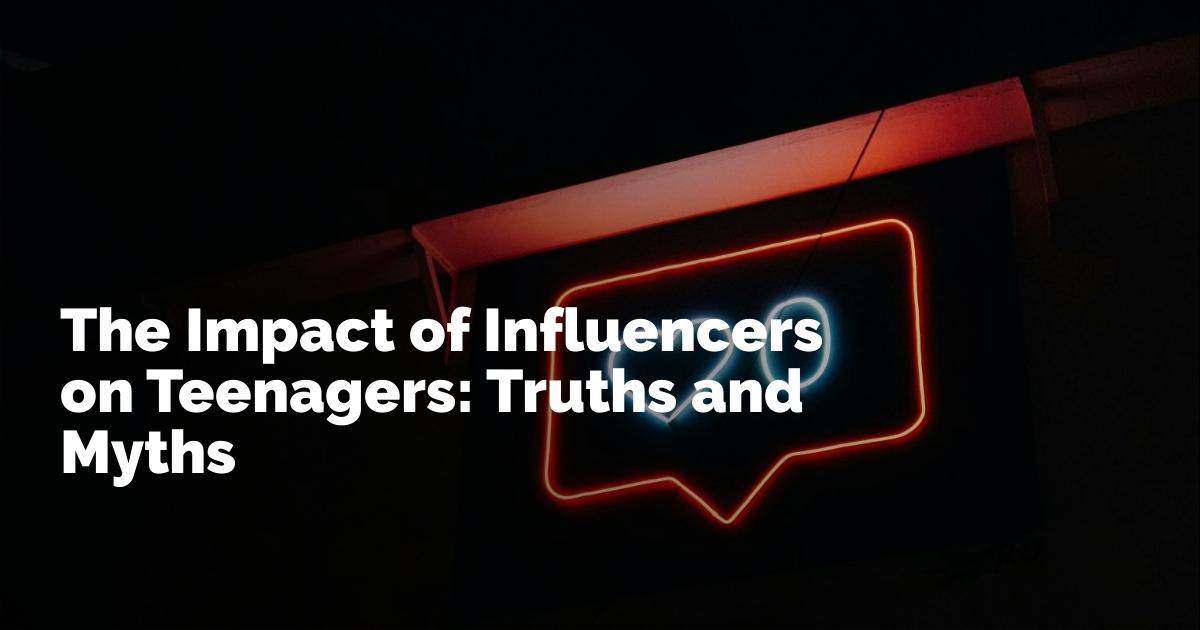Understanding the Influence of Social Media on Teenagers
Social media has become an inseparable part of teenage life, with influencers playing a pivotal role in shaping their perceptions and behaviors. Whether it’s related to fashion, beauty, or lifestyle, influencers have a significant impact on how teenagers think, dress, and feel about themselves. The allure of influencer culture, however, presents both opportunities and challenges. These figures can be sources of inspiration but also have the potential to perpetuate harmful behaviors and mindsets.
The Appeal of Influencer Culture to Teens
Teens typically follow influencers in their search for relatable or aspirational figures. For many young girls, beauty, fashion, and self-care influencers serve as guides for makeup tips, style advice, and body positivity. These influencers often operate as role models by boosting confidence and promoting self-expression. However, the constant exposure to seemingly flawless images and idealized lifestyles can lead to negative comparisons, feelings of inadequacy, and an unhealthy obsession with perfection.
For teen boys, the attraction often lies in sports, gaming, or lifestyle influencers who embody success in competitive fields—whether that's gaming tournaments, extreme sports, or entrepreneurial ventures. While these influencers can inspire ambition, they sometimes encourage toxic behaviors that glorify aggression or a win-at-all-cost mentality, potentially instilling harmful stereotypes about success and masculinity.
Despite gender differences in content, teenagers share a common struggle when exposed to influencer culture: the pressure to measure up to the polished, often unrealistic scenarios of success and happiness portrayed online.
The Dual Nature of Influencer Impact
Influencers wield significant power over their audience, using it to promote positivity and awareness or to promulgate unrealistic ideals. A concerning aspect of influencer culture is the tendency of some influencers to engage in gaslighting, a psychological tactic that makes teens question their worth or reality. By projecting effortless lives while withholding the privilege, resources, or hard work involved, these influencers create a distorted reality, leaving teens questioning their self-worth and actions.
The glamorized lifestyles showcased by influencers often fail to reveal the full picture, causing young followers to ask themselves why they can’t achieve similar success. This selective disclosure fosters environments where feelings of inadequacy and self-doubt flourish, thereby adversely affecting their mental health and perceptions of reality.
Strategies Influencers Use to Draw in Followers
Influencers expertly craft content to keep audiences engaged. Through carefully curated images and videos, they display only the highlights of their lives, fostering a sense of connection with constant updates, interactions, and seemingly vulnerable moments intended to be relatable. Despite the appearance of intimacy, this connection is often one-sided, and the relationship remains virtual and transactional.
Some influencers subtly incorporate techniques of gaslighting, downplaying the effort, privilege, or luck that contributes to their success, so followers remain envious and unaware of the realities behind the façade. This manipulation can exacerbate feelings of isolation and anxiety in teenagers as they internalize the need for external validation and adopt identical unhealthy behaviors observed in their idols, from extreme dieting to impulsive decision-making.
Navigating the Challenges of Influencer Culture
With the pervasive presence of social media, teens possess the agency to moderate their online experiences, albeit with difficulty. Employing scrutiny and critical thinking is essential in discerning whether influencers are genuine or merely promoting a product or ideology. Teens can curate their social media feeds with content that is positive, real, and authentic—following individuals who inspire without invoking feelings of inadequacy.
Adopting cognitive reappraisal, which involves altering the perception of negative situations, can mitigate the detrimental effects of negative media consumption. Furthermore, setting boundaries on social media use and engaging in offline activities that boost self-esteem and foster real-world connections can help maintain a balanced lifestyle.
The ability to unfollow influencers whose content induces negative feelings empowers teens to reclaim control of their mental well-being. Focusing on authentic inspiration and minimizing exposure to toxic influencer culture is integral to fostering healthy self-assurance.
The Role of Parents in Guiding Teens
Parents play a vital role in helping teens navigate the complex landscape of social media. Engaging in open dialogues about the content teens encounter online is important. By demonstrating curiosity and willingness to listen fully, parents can foster a supportive environment for discussing influencer impact. They can explore the tactics influencers use to captivate audiences, such as continuous engagement and the allure of polished content, helping teens discern these sophisticated strategies.
Encouraging teens to pursue self-worth avenues that do not rely on social media validation—such as spending quality time with friends in real-world settings—allows them to derive self-esteem from meaningful, substantive interactions. Establishing concrete boundaries, such as instituting “no phone” zones, encourages teens to engage more deeply with the tangible world around them.
Conclusion: Building Awareness and Resilience
Influencers are likely to remain a fixture in the digital world, but this doesn’t mean teens should be swayed by their influence. By nurturing self-awareness, setting healthy boundaries, and receiving parental support, teens can enjoy social media content without letting it shape their self-image. Achieving this balance involves cultivating emotional intelligence and media literacy, enabling them to appreciate the entertainment and insight influencers provide without losing sight of reality.
The journey toward resilience and awareness in the digital age requires a concerted effort to appreciate social media's advantages while remaining critical of its potential pitfalls. With responsible consumption and genuine support networks, teenagers can navigate the complexities of influencer culture and emerge with a stronger sense of self and a healthier relationship with social media.
출처 : Original Source

